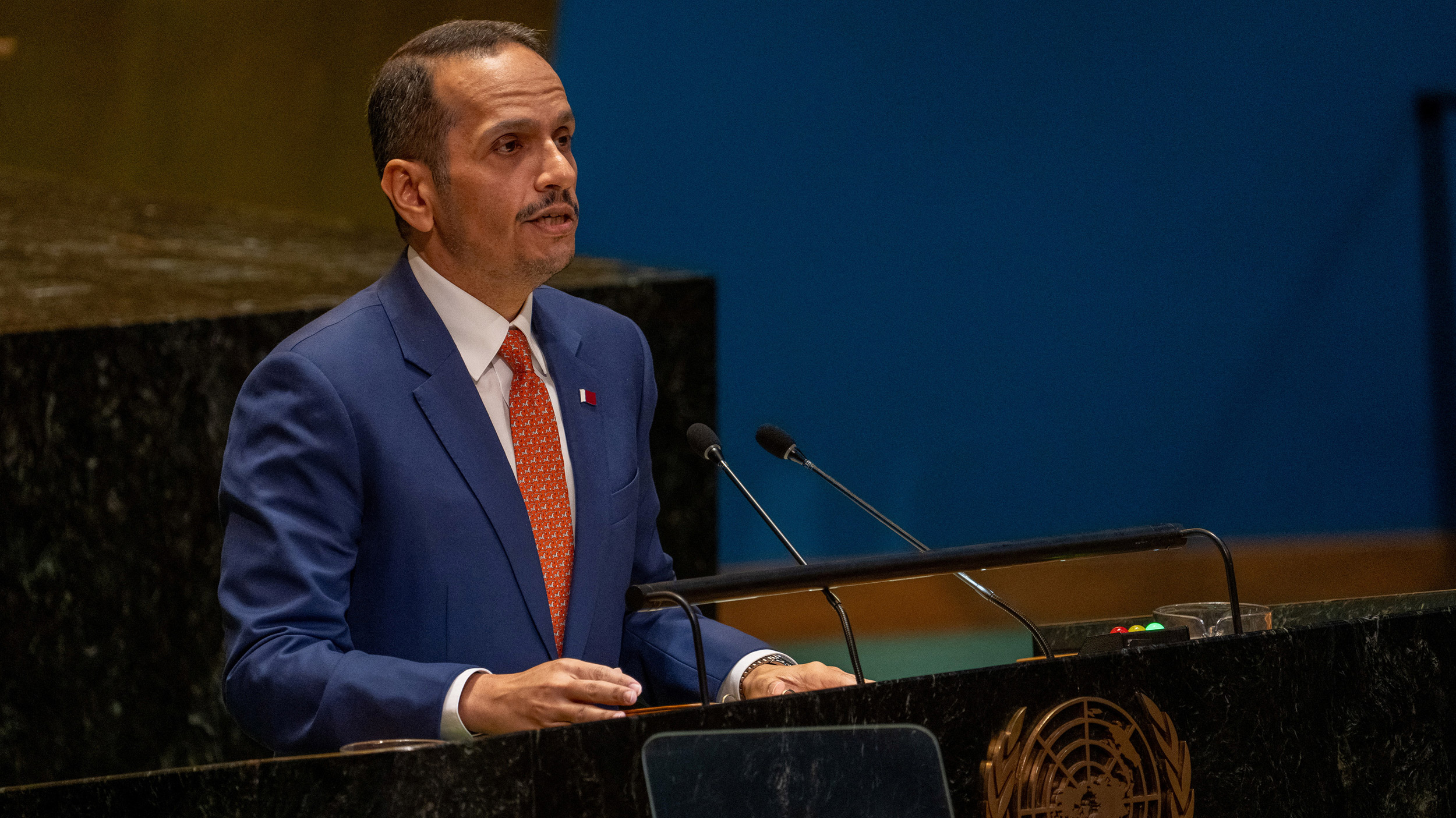
On 9 September 2025, Israel launched an airstrike on a residential building in Doha, Qatar, targeting the Hamas negotiating team that had met to discuss US President Donald Trump’s proposal to end the war in Gaza. The attack, which Qatar considered a rogue act of aggression, poses an unprecedented challenge to the Qatari-US security alliance.
In the wake of the attack, the UN Security Council issued a statement supporting Qatar’s sovereignty and urging it to continue its mediation efforts in concert with Egypt and the United States. At the Security Council meeting, however, Israel’s representative insisted that their country would continue to violate the sovereignty of other states if it served Israel’s security. Nor have Israeli leaders disavowed the attempted assassination; they continue to demand that Doha expel or arrest the Hamas leaders it is hosting and have not ruled out another strike on the Hamas leadership. For his part, Trump pledged that such an event would not be repeated and that he was committed to the United States’s relationship with Qatar.
Israel’s eagerness to eliminate Hamas negotiators and leaders demonstrates that its priority is not the release of its captives in Gaza, but the establishment of new rules in the region—namely, that it can act against anyone, anywhere in the region regardless of state sovereignty or guarantees from the US president.
In the short term, the attack severely undermined the mediation process and shattered trust in the Israeli side, which will be difficult to repair. This is exacerbated by Trump’s ambiguous position on the aggression. Although he claims to have attempted to give Doha advance notice of the attack and voiced regrets about the operation in its aftermath, he nevertheless justified the attempt on the lives of Hamas leaders.
In the longer term, the shift in Israel’s security doctrine may be the most pressing national security issue facing Qatar and its Gulf neighbours. This has implications for the Qatari-American strategic partnership. On one hand, Qatar is likely betting on the prospects for continued strong ties with the United States, believing that the American institutions that determine national security strategies will persist despite changes in US political administrations.
On the other hand, the Trump administration based its major diplomatic success in the region—the Abraham Accords—on the premise that the Gulf states and Israel share a common goal of confronting the Iranian threat. After the Israeli attack on Qatar, however, the justification for the accords no longer holds. How can Gulf states ally with Israel when it refuses to respect their sovereignty? The Israeli attack may thus spell the beginning of the end of the Abraham Accords, or at least a freeze in the agreement.
Mediation and security are integral to Qatar’s national strategy. Mediation increases its friends, makes it central to, but not directly involved in conflicts, and elevates the country’s status and power. Given this, Qatar’s efforts to mediate on Gaza will play out in one of three ways.
First, negotiations may be suspended until the Israeli leadership changes. This is most likely given Israeli intransigence and its evident disinterest in the release of its captives held by Hamas. Moreover, while Qatar may insist on an apology to restore its reputation, Netanyahu may refuse to apologize.
Second, mediation efforts may continue, but with conditions. Doha will not continue to play this role without significant concessions, including a demand for an official Israeli apology, tighter security measures and immediate US guarantees. All of this requires time and preparation and so may not be achievable in the near future. The Israeli leadership is currently planning on expanding military action in Gaza and does not seem likely to cease its attempts to assassinate Hamas leaders abroad.
Third, negotiations may move ahead with steps taken to avoid the Israel threat. Talks would be organised between the negotiating parties and the mediators, Qatar and Egypt, to ensure the safety of the Hamas delegation, which would be located in a secure area inside or outside Qatar. But this scenario is far-fetched, as Qatar will likely refuse to participate in negotiations that seek the release of Israeli captives held by Hamas while Israel threatens to strike Qatar if it hosts Hamas for these same negotiations.
*This is a summary of a policy brief originally written in Arabic available here.